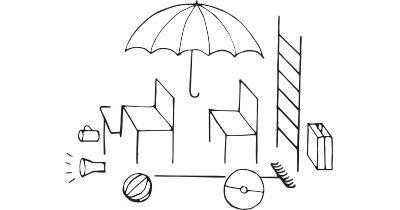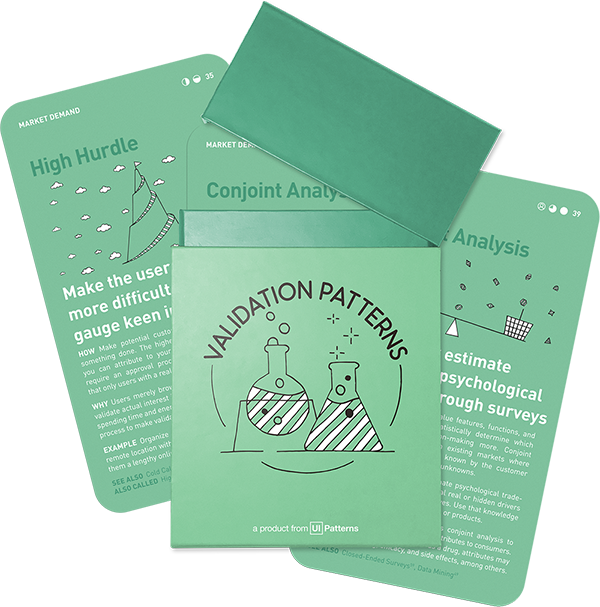Idea Validation: Market demand, Product
Mashup
Assemble a product by piecing together third-party products

How: Construct an early product rapidly using existing products, platforms, services, frameworks, and libraries. Piece them together with the help of scripting or scripting services like Zapier or IFTTT.
Why: By using third-party products to speed up development time, you can avoid facing classical developer problems like cross-browser compatibility, responsive design, and code optimizations because they are already taken care of. Focus on building your MVP rather than the design and development meant to support it.
Piecing together existing products
APIs, PaaS, and SaaSes are so plentiful that you can literally build your minimum testable product by piecing together different existing products. In most cases, it is possible to build your first testable product without writing a single line of code: A “No-code MVP”. It might not scale to thousands of users, but it will help you figure out if it makes sense to spend more effort, time, and resources to further realize the idea.
Popular tools
The tools below will help you with the Mashup play.
Real life Mashup examples
Groupon
In its early stages, Groupon, then called ‘The point’, was a combination of WordPress, Apple Mail, and an AppleScript that generated order PDFs manually as they were received from the website.
Source: How Groupon Was Founded
Makerpad
An educational platform teaching entrepreneurs to build no-code projects. Makerpad, built using Webflow, Stripe, Zapier, Airtable, and Convertkit, generated significant revenue before it was acquired by Zapier.
A collection of 60 product experiments that will validate your idea in a matter of days, not months. They are regularly used by product builders at companies like Google, Facebook, Dropbox, and Amazon.
Get your deck!Related plays
- The Ultimate Step-By-Step Guide to Validating Your Startup Idea by Alex Chuang
- 15 ways to test your minimum viable product by Christopher Bank
